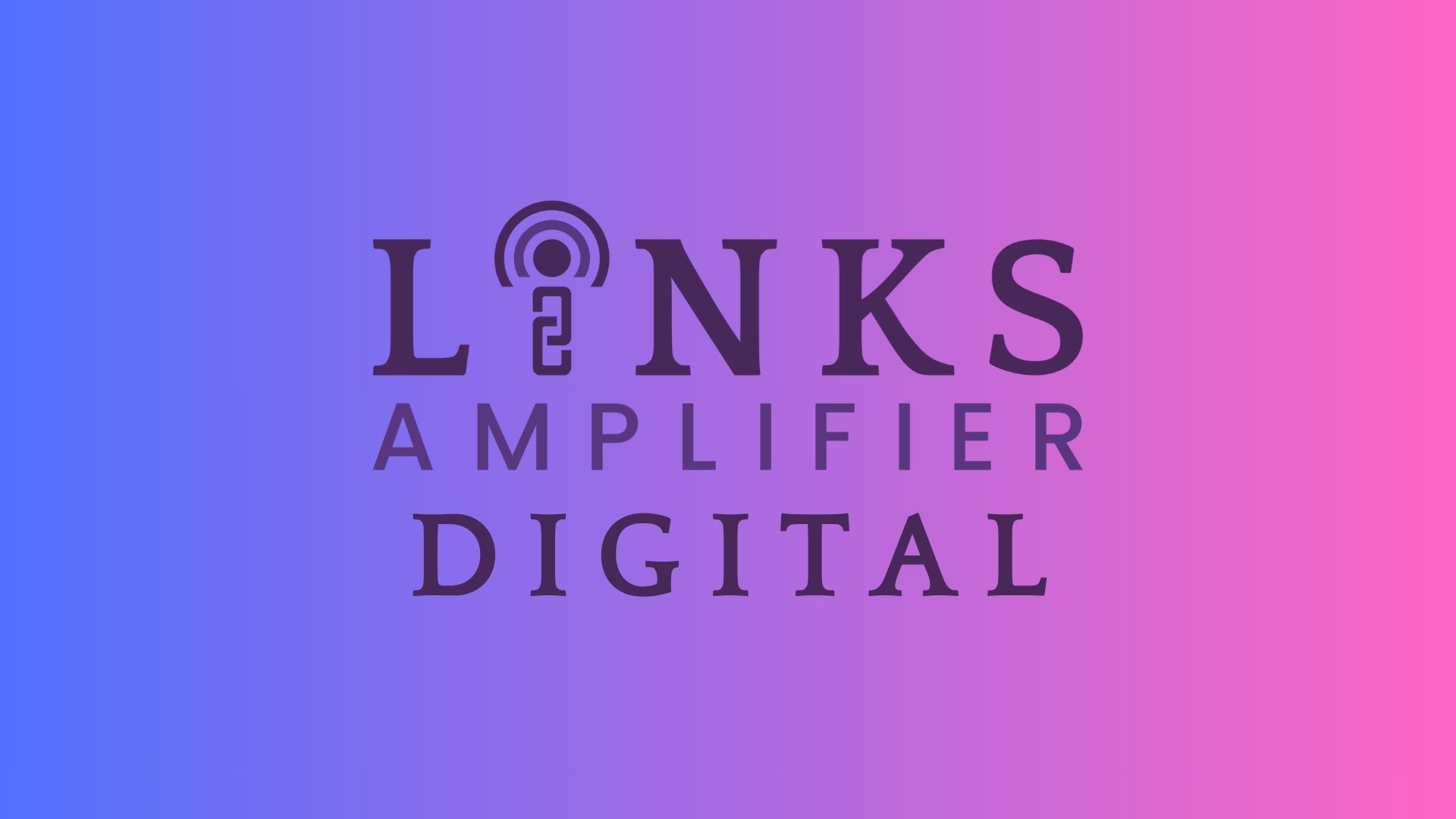The SEO industry is undergoing one of its most significant shifts in years. Search engines are no longer the only way people find information. Large Language Models (LLMs) like ChatGPT, Google’s Gemini, Claude, and other AI chatbots are changing how users access knowledge and make decisions.
But one thing hasn’t changed: the importance of quality links.
In this guide, we’ll explore what LLMs are, how they function, and how they interact with web content, as well as why building trustworthy backlinks is even more crucial in this new environment.
What Is an LLM? A Plain-Language Explanation
A Large Language Model (LLM) is a type of artificial intelligence system trained on enormous amounts of text to understand, predict, and generate human-like language.
Unlike traditional search engines like Google, which retrieve real-time results from the web, LLMs don’t browse the internet in real-time. Instead, they respond based on patterns they’ve learned during training. This includes books, articles, forums, and yes, websites it has crawled and read. When you ask a question, an LLM uses its internal knowledge to generate a response, rather than searching online.
Popular examples of LLMs include:
- OpenAI’s ChatGPT
- Anthropic’s Claude
- Google’s Gemini (formerly Bard)
- Meta’s LLaMA
- Perplexity AI
LLMs are built to:
- Answer questions in a conversational tone
- Summarize long or complex content
- Generate creative text
- Assist with writing code or analyzing data
They do this by “predicting” the most likely words or phrases that should follow in a sentence based on context, essentially completing your thoughts in a way that feels natural and intelligent.
How Do LLMs Work? (Non-Technical View)
Here’s a simplified, step-by-step view of how an LLM works:
Training Phase
- Billions of words and documents are fed into the model.
- The AI learns relationships between words, phrases, and concepts.
- It develops statistical weights for predicting the next word in any given context.
Pattern Recognition
- It doesn’t memorize websites word for word.
- Instead, it learns general patterns about how language is used and what information is reliable.
Generation
- When a user types a question, the model generates an answer by selecting the most probable next words.
- The result is text that sounds natural and informed.
LLMs do not search the web live. They rely on the data they were trained on.
This is crucial for businesses: if your content isn’t in that training data, you can’t inform or influence the AI’s answers.
What Does This Have to Do With Link Building?
Everything.
Link building remains one of the most effective ways to get your content ranked higher in Google’s organic search results.
But now there’s an added benefit:
High-ranking, well-linked pages are more likely to be included in the datasets that train LLMs.
When LLM creators build their training datasets, they use web crawls. These typically prioritize:
- High-authority sites
- Pages that appear in top search results
- Sites with a good reputation and link profiles
If your website is ranking well thanks to high-quality links, it is far more likely to appear in these training datasets.
Why Is That Important?
Let’s consider what happens when someone uses an AI chatbot to research your industry:
- If your content is part of the model’s training data, the AI might generate answers that mirror your messaging or mention your brand.
- Even if your brand isn’t named directly, the information you’ve published can shape how the AI describes your products or services.
- Users who see consistent ideas and language about your brand across search and AI-generated answers are more likely to trust you.
In other words, link building isn’t just about ranking in Google anymore. It’s about owning a share of voice in the AI-driven information ecosystem.
Search Engines Still Use Links as a Core Signal
Even with the rapid evolution of AI and the rise of conversational search, backlinks remain a foundational ranking factor in Google’s algorithm. While modern search engines are getting smarter at understanding content, links remain one of the most reliable ways to evaluate a website’s credibility, authority, and relevance.
Why Links Still Matter for SEO
Here’s why backlinks are still essential, even in 2025 and beyond:
- They signal trust and authority: When reputable websites link to your content, it tells Google that your page is trustworthy and valuable. These “votes of confidence” carry weight, especially when coming from high-authority domains in your niche.
- They assist in content discovery and indexing: Search engine crawlers use links to find and navigate web pages. A well-linked site improves crawlability and ensures your pages are properly indexed, and therefore visible in search results.
- They establish relevance between topics: Contextual links from related content help Google understand what your page is about. This relevance strengthens your position for specific keywords and topics.
- They remain one of the top ranking signals: Countless industry studies, including those from Ahrefs and SEMrush, show a direct correlation between the number and quality of backlinks and a page’s ability to rank on the first page of Google.
Links and the Future of Search
As Google rolls out features like Search Generative Experience (SGE) and AI-powered summaries, it’s putting even more emphasis on authoritative and verifiable sources. These new experiences often pull content from top-ranking websites to generate AI-driven answers—meaning if your site isn’t seen as authoritative, it’s less likely to be included in these premium placements.
Without strong backlinks, your site is at a disadvantage, not only in traditional rankings but also in how AI-driven search experiences surface and summarize content.
How Do LLMs Get Their Training Data?
To understand why links matter for AI visibility, let’s look at how LLM developers collect training data:
- Massive web crawls: They use bots to scrape public web pages.
- Filter for quality: They remove spam, duplicate content, and low-value pages.
- Weight authoritative sites: High-ranking, well-linked sites are prioritized because they’re more likely to contain reliable, human-curated information.
This filtering process means your content is more likely to be included if it ranks well and is linked to authoritative sources.
Example: How Link Building Impacts AI Training
Consider two competing sites in the same niche:
Site A:
- Low-quality links
- Poor content
- Ranks on page 5 for key queries
Site B:
- Strong backlinks from industry-relevant, high-DR sites
- High-quality, original content
- Ranks top 3 for important keywords
LLMs scraping the web are more likely to see, learn from, and absorb Site B’s content. Overtime:
- AI tools will reflect Site B’s messaging, terminology, and ideas.
- Consumers asking AI questions about the topic will get answers that align with Site B’s expertise.
How Link Building Supports Brand Authority in AI Systems
Here’s the real strategic value:
Reputation Transfer
- Backlinks act as endorsements.
- AI models interpret these endorsements as a sign of credibility.
Increased Crawl Frequency
- Search engines and AI crawlers prioritize highly linked pages.
- Your site stays fresher in its datasets.
Training Data Inclusion
- High-ranking pages are more likely to be sampled for training data.
- Your content shapes the AI’s “understanding” of your niche.
SERP Visibility
- Even with AI-powered results in search, top-ranking pages are often featured or cited.
- Strong links keep you visible in traditional and generative search results.
LLMs and E-E-A-T: Why Trust Signals Matter
Google’s guidelines emphasize Experience, Expertise, Authoritativeness, and Trustworthiness (E-E-A-T).
Backlinks are one of the clearest off-page trust signals.
LLM creators also aim to avoid low-quality or misleading data in training. Sites with strong E-E-A-T signals, backed by quality links, are safer and more valuable training sources.
By investing in link building, you’re not just gaming Google. You’re building a credible, trustworthy brand that’s more likely to influence AI outputs.
Best Practices for Link Building in the Age of AI
To capitalize on this shift, businesses should still focus on quality over quantity.
Target High-DR Sites
While Domain Rating (DR) isn’t an official Google ranking factor, it’s a useful proxy for site authority. High-DR sites (e.g., DR 50+) typically have strong backlink profiles themselves, making them more trusted by search engines. But remember: DR alone isn’t enough. A high-DR link that’s completely irrelevant to your niche offers limited SEO value. Always combine authority with relevance.
Ensure Real Traffic
Links from sites with real, verifiable traffic are more valuable than links from dead or spammy domains. Search engines—and even AI training datasets—favor pages that real people visit and engage with. Prioritize publishers that have an actual audience.
Focus on Relevance
Relevance is critical. Even a link from a lower-DR site in your industry can sometimes be more powerful than a high-DR link from an unrelated niche. Search engines weigh how topically related the linking site is to your content. Aim for links that make contextual sense for your audience and your expertise.
Avoid Spam Tactics
Low-quality private blog networks (PBNs), irrelevant paid links, or link exchanges that appear manipulative can harm your rankings and reduce your site’s credibility as a trustworthy source of AI training data. Sustainable link building means avoiding shortcuts that put your site at risk.
Leverage Content Partnerships
Build real relationships in your industry. Guest posts, interviews, expert roundups, and collaborative content help you earn authoritative, relevant links while also boosting your brand reputation. These partnerships often lead to natural, repeatable links over time.
Optimize Anchor Text Naturally
Anchor text still helps search engines understand context, but over-optimized anchors can look spammy. Use a mix of branded, generic, and topical anchors that feel natural in the linking content. This builds trust and signals authenticity to both search engines and users.
Link Building as Part of a Broader Content Strategy
Link building doesn’t stand alone. It works best when it’s part of a strong, consistent content strategy that actually provides value.
Your content is what gives others a reason to link to you in the first place. Without useful, credible, or unique content, even the best outreach campaign will struggle.
Here’s how to integrate your link building into your broader content plan:
Answer Real Questions
Your content should address what your audience is actually searching for. This improves your chances of ranking organically and makes it more attractive for others to cite.
Prioritize Original Research or Insights
When you publish something unique—like a survey, industry analysis, or a strong point of view—you give other sites a reason to link back. AI systems also value this originality when learning about a topic.
Update and Improve Existing Content
Your older pages might still earn links if they stay relevant. Regularly update cornerstone content with new data or examples to maintain its value.
Use Strategic Internal Linking
Once you earn external backlinks, make sure your site structure supports them. Internal links help distribute that authority to other key pages.
Promote Your Content Proactively
Don’t just publish and hope for the best. Share your content on social media, in newsletters, and through partnerships to get it in front of people who might link to it.
Future-Proofing Your Brand for AI Search
We’re entering a world where AI assistants and chatbots are major discovery channels. Instead of typing questions into Google, people are asking AI systems directly.
But those AI systems still need data. And they get that data from the open web—prioritizing high-quality, well-linked, well-ranked content.
Here’s why link building is a future-proof investment:
Increases Your Search Visibility
Links remain a critical ranking signal. No matter how search results change, well-linked pages will have an advantage.
Boosts Your Inclusion in AI Training Data
AI companies crawl the web to learn. They filter for quality and authority. Sites with strong backlink profiles are more likely to make the cut.
Shapes How AI Talks About Your Industry
When your content is part of the data AI learns from, it can influence the language and ideas these systems use to answer questions in your niche.
Strengthens Brand Authority Across Channels
High-quality backlinks are endorsements that signal trust not just to Google, but to users, partners, and AI systems.
Conclusion
The rise of LLMs and AI search doesn’t make link building obsolete. It makes it more essential than ever.
If you want to stay visible—on Google, in AI-generated answers, and in the minds of your customers—you need to invest in trustworthy, high-quality backlinks that signal your authority to both humans and machines.
How Links Amplifier Digital Can Help
At Links Amplifier Digital, we don’t do spammy link swaps or shady PBNs.
We focus on relationship-based link building that earns you placements on:
- High-DR, real-traffic websites.
- Relevant industry publishers.
- Sites that Google and AI systems see as trustworthy sources.
Our process is built for businesses that want long-term, sustainable growth in search and beyond.
We offer:
✅ Strategy tailored to your industry and goals.
✅ Transparent, fair pricing.
✅ Real outreach, not automated spam.
✅ Links that last and deliver results.
Ready to Future-Proof Your Brand?
If you’re serious about ranking higher in search, building authority in your space, and making sure your brand is part of the future of AI-driven discovery, let’s talk.
FAQ: Can Link Building Really Help My Brand Appear in AI-Generated Results?
Curious about how link building affects AI visibility and search rankings? Here are quick answers to common questions.
Q1. Do backlinks make my brand show up in AI answers automatically?
A: No, there’s no guaranteed way to make AI chatbots mention your brand by name every time. AI models don’t “search” the web live. They generate answers based on huge training datasets built from web crawls.
However, having strong backlinks makes your site more likely to be crawled, indexed, and included in that training data. That gives your content a better chance to shape how AI systems describe your industry or topic.
Q2. Why do backlinks matter for AI training data?
A: AI models prioritize quality. When companies build these models, they filter out spam, low-quality, and irrelevant content.
Well-linked, authoritative pages are:
- Easier to find in web crawls.
- More likely to pass quality filters.
- More likely to be included in the final dataset AI systems learn from.
Q3. How exactly do links help my visibility in search?
A: Links are one of Google’s core ranking signals. Quality backlinks signal trust, relevance, and authority.
The benefits are twofold:
- Better rankings in Google mean more organic traffic.
- Higher-ranked pages get crawled more often and more deeply—making them more visible for inclusion in AI training data.
Q4. Does Domain Rating (DR) still matter?
A: DR is not an official Google ranking factor, but it’s a good proxy for authority.
- High-DR sites usually have strong backlink profiles themselves.
- Links from them pass more SEO value.
But DR alone isn’t enough. Relevance matters just as much. Links should come from sites in your industry or niche to maximize value.
Q5. Are spammy links or PBNs a problem for AI visibility?
A: Absolutely. Low-quality, manipulative link-building tactics can hurt you in multiple ways:
- Google may penalize or ignore those links.
- AI model builders actively filter out spam and low-quality sites from training datasets.
If you want your content to be considered authoritative by both Google and AI systems, you need real, high-quality, relevant backlinks.
Q6. Can link building help with Google’s AI-powered search features?
A: Yes. Google’s Search Generative Experience (SGE) and other AI-powered features rely on its index and ranking systems.
Pages with strong backlinks are more likely to:
- Rank high in traditional search.
- Be chosen for AI-powered summaries, snapshots, or answer boxes.
Q7. Is link building enough on its own?
A: No single tactic is enough. Link building works best alongside:
- High-quality, relevant content.
- Technical SEO.
- Good user experience.
It’s part of an overall strategy to make your site more authoritative, discoverable, and trustworthy.
Q8. How does Links Amplifier Digital approach this?
A: We focus on relationship-based, high-authority link building.
- We target real sites with real audiences.
- We prioritize relevance, not just DR.
- We avoid spammy shortcuts.
Our goal is to help you rank better in Google, attract qualified traffic, and strengthen your brand’s authority, even in the age of AI-powered search and chatbots.

Jinky Oblianda is the founder of Links Amplifier Digital. She has been building links for businesses and helping agencies for years before slowly starting her own agency.


